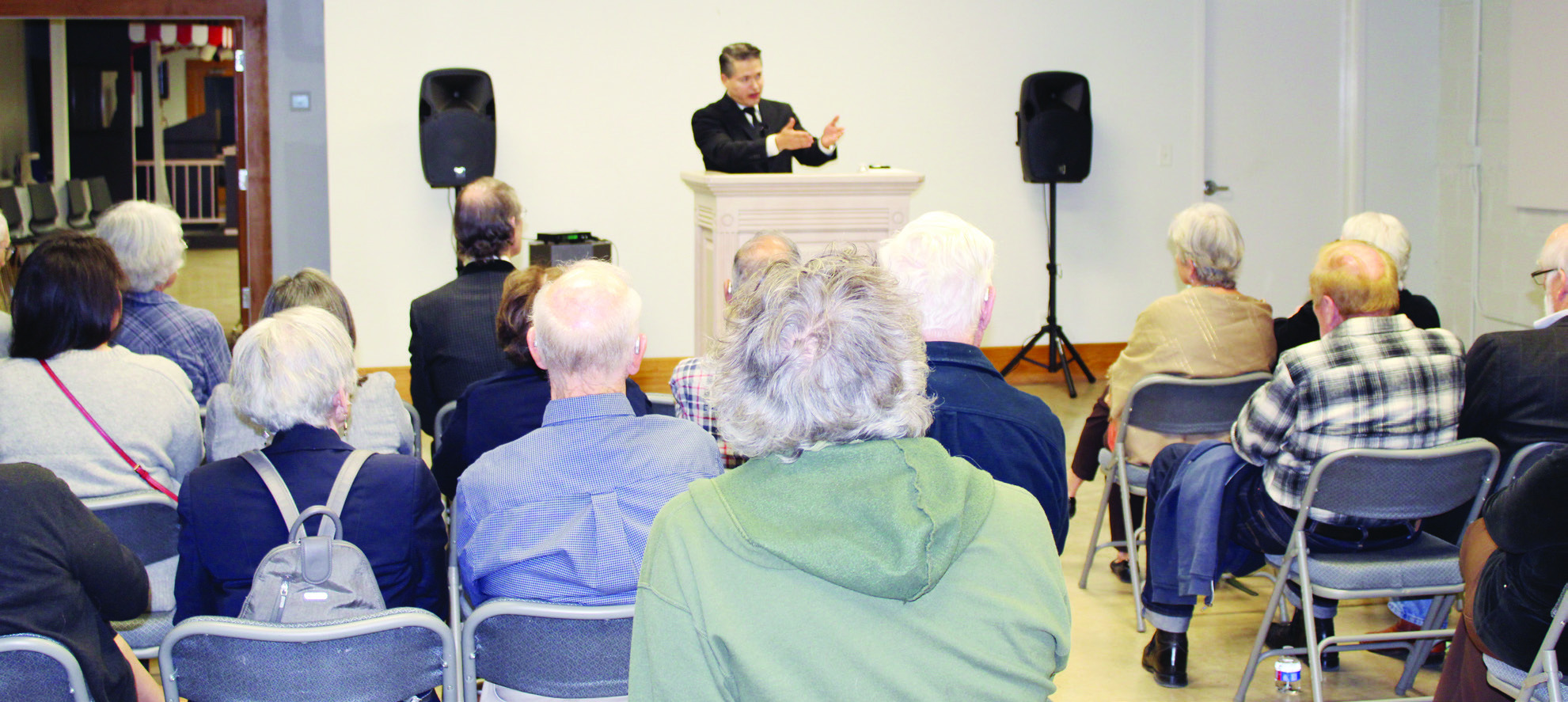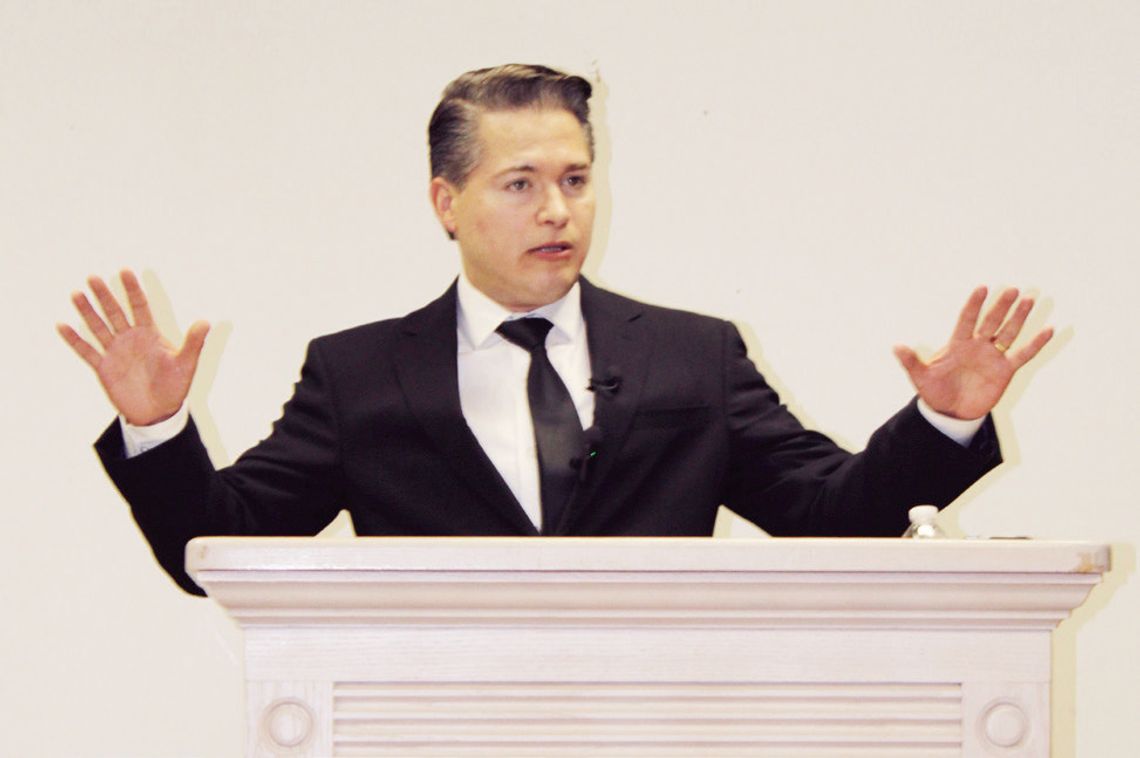LBJ MUSEUM OF SAN MARCOS
With the increase in immigration regulation and the amount of deportations as of late, issues centered around immigration are top of mind for many. The LBJ Museum of San Marcos hosted its Spring Lecture, which featured Immigration Attorney Gerardo Menchaca. He has dedicated his career to working in immigration law. Menchaca provides his clients with comprehensive legal guidance regarding business and family immigration concerns, including obtaining visas. He counsels his clients on all matters related to the permanent residency and naturalization process.
“We live in the best country in the world. And because we live in the best country in the world, people want to come and be a part of it,” Menchaca said. “When the nation’s founding fathers came, there were no immigration laws on the books at that time, so they were able to … become American. But that has changed. There’s more and more regulation, and it gets harder to come to the United States. My day-to-day job is to help people navigate that complexity.”
Menchaca gave a simple pyramid metaphor to simplify immigration law. US citizens are at the top of the pyramid. Below that are people with a “green card,” or permanent residents, which are people that are allowed to be in the US as well as work there. He said below that are the people with visas, which is his area of expertise, and those people are able to temporarily enter the US with a specific purpose. There are 185 different kinds of visas, ranging from things like work visa, artist visa, investors visa and athlete visa, to name a few.
“To become a US citizen, you have to have lived here for three to five years with the green card. You have to pay your taxes,” Menchaca said. “You have to have good moral character, which is kind of hard to define, but it really just means no criminal record … And you have the pass the civics exam.”
Menchaca read some of the questions on the civics exam: “The House of Representatives has how many voting members? We elect a US representative for how many years? Name your US representative. What are two cabinet level positions? What is the name of the speaker of the house? When is the last day you can send your federal income tax forms? What year was the Constitution written?” The applicant will be asked 10 questions, and to pass, they must answer six correctly. There is a written and interview exam to ensure one knows English proficiently.
Menchaca talked about the Trump administration cracking down on immigration regulation, and the way some of those changes have impacted law.
“He is making an effort to end birthright citizenship,” Menchaca said. “If you were born here, you’re from here. Well, President Trump wants to change that, and he’s saying that if your parents or your mother was in the United States without permission when she gave birth to you that you should not be a US citizen. And if your mother was here on a temporary visa, any of the visas that I told you about, that you should not be a US citizen.”
Menchaca said this is unconstitutional because the Fourteenth Amendment to the Constitution states that “if you’re born here, you’re a US citizen.” This matter was also settled in the Supreme Court previously in which it addressed the meaning of the Citizenship Clause in the Fourteenth Amendment. In this case, Wong Kim Ark was born to Chinese citizens in San Francisco. When he turned 21 years old, he took a trip to China and was denied entry back into the US. The court ended up ruling 6 to 2 in Ark’s favor because he was not “employed in any diplomatic or official capacity under the Emperor of China,” according to the National Constitution Center website.
Menchaca said that you need two-thirds majority approval of Congress to change the Constitution; however, he is concerned that the president is trying to do so with an executive order.
Menchaca talked about a recent increase in power given to US Immigration and Customs Enforcement in which places that were previously off limits for detaining people no longer are; as long as it is within the United States, one can be detained from that location. He said there are now active military members arresting undocumented people on the border. He said under all previous presidents, there was a rule that if one was caught within 100 miles of the border, they had less due process rights and the government could enact expedited reform to remove them quickly. Menchaca said Trump is using expedited reform with limited due process no matter where the undocumented person is found.
“Basically, expedited removal means you’ll be gone within days. They arrest you. They process you, and they put you on a plane. And they send you off,” Menchaca said. “If you happen to get arrested — say under President Biden or anybody before — because you were here undocumented, like anybody else that was arrested, you were allowed to post bail — assuming you were not a danger to the community or yourself. You could post it online, go on bail, wait for your court hearing and then come back to the court like any other criminal case. Well, bail is being denied across the board for everybody.”
Menchaca said Trump is also increasing restrictions for immigrants or travelers from certain countries. He talked about the travel ban enforced on Muslims in Trump’s first term. He said he is planning to enforce a second ban that will include, not just Muslim countries, but many others as well.
“What that means is … if you end up with someone from North Korea or Venezuela, you cannot bring them here, period,” he said. “Thus, violating the rights of US citizens who want to be reunited with family members.”
Menchaca said Trump is also suspending political asylum, which was a concept that allowed someone to flee here if they were from a country where they were being persecuted.
“People who already had appointments to apply for asylum have had their appointments canceled,” he said. “Border Patrol agents have been ordered to turn people back without granting them an asylum hearing, which was standard practice in previous administrations.”
Menchaca pointed to five million children who would be left semi-orphaned if their parents were deported.
“And that’s a problem for this country,” he said.
The LBJ Museum of San Marcos is open Thursday, Friday and Saturday from 11 a.m. to 5 p.m.

Menchaca addresses the audience. Daily Record photo by Shannon West








